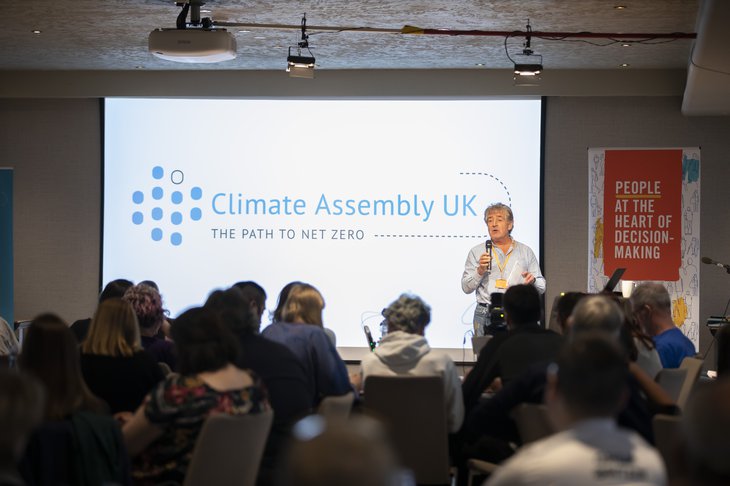Governments and parliaments around the world are increasingly using citizens' assemblies in their work.

What is a citizens’ assembly?
A citizens’ assembly is a group of people who are brought together to learn about and discuss an issue or issues, and reach conclusions about what they think should happen.
The people who take part are chosen so they reflect the wider population – in terms of demographics (e.g. age, gender, ethnicity, social class) and sometimes relevant attitudes (e.g. their views on climate change).
Citizens’ assemblies give members of the public the time and opportunity to learn about and discuss a topic. Participants hear from, and question, a wide range of specialists. These can include, for example, academics, researchers, people with direct experience of the issue, other stakeholders and campaigners. Through this process, they hear balanced evidence on the issue, before discussing what they have heard with one another and deciding what they think.
Citizens’ assemblies usually last for two or more weekends and have forty or more participants. Independent facilitators are there at all times to help ensure everyone’s voice is heard. The conclusions of the citizens’ assembly are written up in a report that is presented to decision-makers.
Have there been citizens’ assemblies before?
The first citizens’ assembly took place in Canada in 2004. It was set up by the government of British Columbia. It discussed whether to change British Columbia’s voting system. It recommended a new system, and this was put to voters in a referendum.
Today, citizens’ assemblies are much more widely used by governments and parliaments around the world, at national and local level. Citizens’ assemblies have taken place elsewhere in Canada, as well as in Australia, United States, France, Belgium, the Netherlands and Poland, among other countries. The recent citizens’ assembly in the Republic of Ireland looked at issues including abortion, equal marriage and the opportunities and challenges of an ageing population.
In the UK, governments and parliaments at local and national level have called citizens’ assemblies to look at issues including:
- How adult social care in England should be funded long-term (UK Parliament, 2018) – find out more;
- The future of Scotland (Scottish Government, 2019-2020) – find out more;
- How can people in Wales shape their future through the work of the National Assembly for Wales (National Assembly for Wales, 2019) – find out more;
- Congestion, air quality and public transport (Greater Cambridge Partnership, 2019, as part of the government’s Innovation in Democracy Programme);
- The future of town centres (Dudley Metropolitan Borough Council and Test Valley Borough Council, 2019, as part of the government’s Innovation in Democracy Programme);
- Air quality (Kingston Council, 2019);
- Climate change (Oxford City Council, Camden Council, and others, 2019-2020)
Events similar to citizens’ assemblies but on a smaller scale have also often been held in the UK and elsewhere. These are sometimes called citizens’ juries, as they are similar to juries in criminal trials. In a citizens’ jury, twelve or more members of the public hear evidence before discussing the issues and making recommendations.